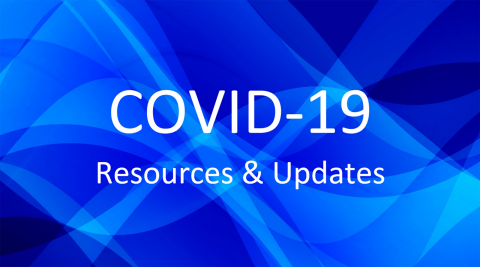COVID-19: Federal, Ontario, Alberta & BC Updates

The Federal Government is providing assistance to small businesses, along with updated economic measures to help stabilize the economy during the COVID-19 pandemic.
Ontario, BC, and Alberta continue to implement and enforce measures to combat the COVID-19 outbreak.
Updates for March 26, 2020 are as follows:
Assistance for Small Business
The Federal Government has temporarily updated the following programs to assist small businesses facing financial challenges during the COVID-19 pandemic:
Extending the Work–Sharing Program
The federal government introduced temporary special measures that extend the maximum duration of work-sharing agreements from 38 weeks to 76 weeks across Canada for those businesses affected by the downturn in business due to COVID-19.
Work-Sharing (WS) is a program that helps employers and employees avoid layoffs when there is a temporary decrease in business activity beyond the control of the employer.
For more information on the WS program updates, click here.
New Wage Subsidy Program for Small Business
The Temporary Wage Subsidy for Employers is a measure that will allow eligible employers to reduce the amount of payroll deductions required to be remitted to the Canada Revenue Agency.
The subsidy is equal to 10% of the remuneration employers pay for three months, up to a maximum of $25,000 per employer.
Businesses can benefit immediately from wage subsidies by reducing their remittances of income tax withheld on their employees’ remuneration.
For more information visit the Temporary Wage Subsidy program website.
Business Credit Availably Program Established
A Business Credit Availability Program (BCAP) has been established by the Canadian government to provide more than $10 billion of additional support, largely targeted towards small and medium sized businesses.
Learn more about the Business Credit Availability Program.
Payment Flexibility for Income Taxes
The government is allowing businesses to defer until after August 31, 2020, the payment of any income tax amounts (tax balances, instalments) that become owing on or after March 18, 2020 and before September 2020, without interest or penalties.
Learn more about the payment flexibility.
Federal Government
Updated Canada Emergency Response Benefit
Yesterday we announced the passing of the Canada Emergency Response Benefit Act. Today we’ll break it down into more detail and address some updates.
This new act provides 2 main sections:
1. A new streamlined benefit for workers impacted by COVID-19 that will replace the two previously proposed benefits announced last week.
The new Benefit Act will provide $2000 a month for up to 16 weeks, providing income support for eligible (part-time, full-time and self-employed) workers who:
- have ceased working for reasons due to COVID-19;
- are sick or quarantined;
- are taking care of a family member who is sick with COVID-19;
- are parents with children who require supervision due to school or daycare closures; or
- remain employed but are not receiving income due to disruptions to their work caused by COVID-19.
Update: the online portal for application is targeted to be released on April 6, 2020.
2. A new COVID-19 leave introduced into the Canada Labour Code that provides employees who are unable to work for reasons related to COVID-19 with a job protected leave of absence for up to 16 weeks.
The COVID-19 leave is in place until October 1, 2020, at which time it is currently scheduled to be removed from the Canada Labour Code. This change to the Canada Labour Code is part of the federal government’s sweeping measures in response to the spread of the novel coronavirus.
More details on updated information on the Canada Emergency Response Benefit.
Quarantine Act
The Government of Canada announces it will be invoking the Quarantine Act to impose a mandatory 14-day self-isolation period for international travelers entering the country. Essential workers will be exempt from this mandatory self-isolation.
Provincial Updates
Details are Announced for Ontario’s Action Plan: Responding to COVID-19
The $17 billion in spending and relief will include:
- $3.3 billion for additional healthcare resources, including:
- establishing a dedicated $1-billion COVID-19 contingency fund
- $341 million to improve hospital capacity
- $100 million in increased public health funding
- $75 million to provide personal protective equipment and critical medical supplies to front-line staff to deal with COVID-19
- $10 billion to support businesses, including through tax-related relief and deferral of WSIB payments for up to 6 months.
- $3.7 billion for direct relief to people, including a one-time payment of $200 per child up to 12 years of age, energy and tax-related relief, and increased funding for charitable and social services.
For more information, visit the official Ontario Action Plan webpage.
BC provides guidance to mining and smelting operations
On March 25, 2020, the BC government issued COVID-19 operational guidelines for employers in mining and smelting and manufacturing industries. These guidelines are similar to guidelines issued March 22, 2020 for employers in the construction industry.
Alberta Enforcing measures to stop spread of COVID-19
The government of Alberta announced that enforcement agencies have been granted full authority to enforce public health orders and issue fines following recent amendments to the Procedures Regulation under the Provincial Offences Procedures Act.
Public health orders subject to fines for violation include:
- mandatory self-isolation for 14 days for any individual who has travelled outside of Canada, plus an additional 10 days from the onset of any symptoms should they occur, whichever is longer;
- mandatory self-isolation for any individual who exhibits COVID-19 symptoms for a minimum of 10 days from the start of their symptoms, or until the symptoms resolve, whichever is longer;
- mandatory self-isolation for any individual who has been identified as a close contact of a person(s) with COVID-19 for 14 days from the date of last having been exposed to COVID-19, plus an additional 10 days from the onset of any symptoms should they occur, whichever is longer;
- mass gatherings must be limited to no more than 50 attendees; and
- access to private entertainment facilities, bars and nightclubs is prohibited.
Individuals or businesses that violate any public health orders may be subject to steep fines. For more information, click here.


